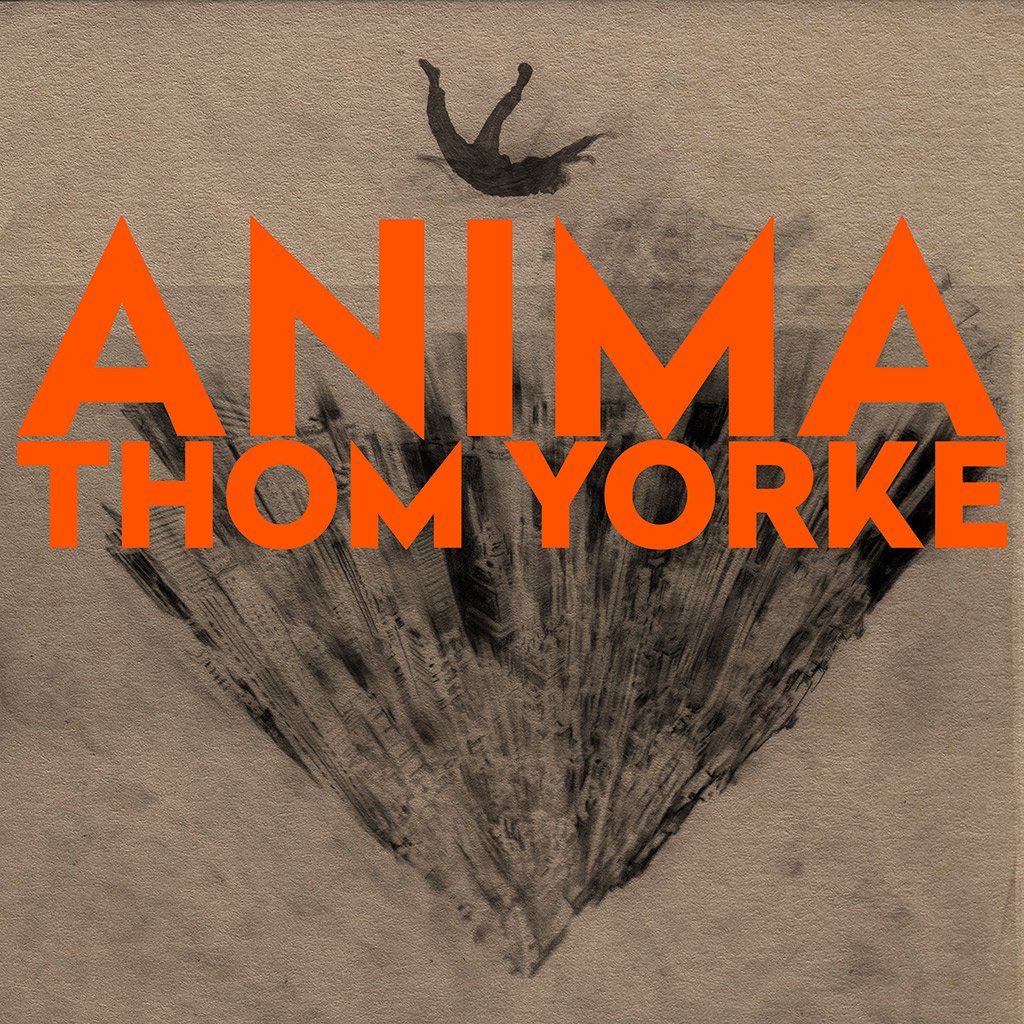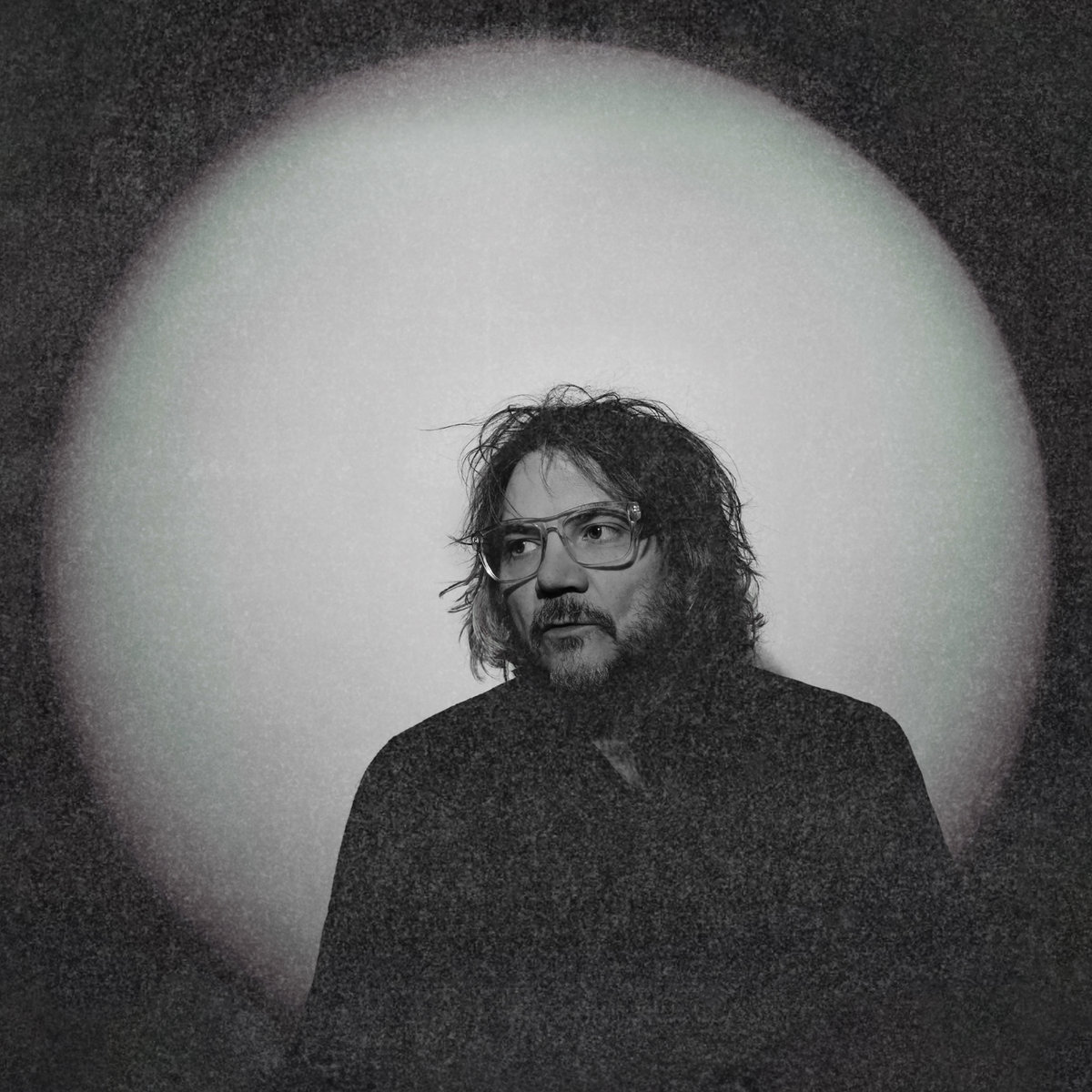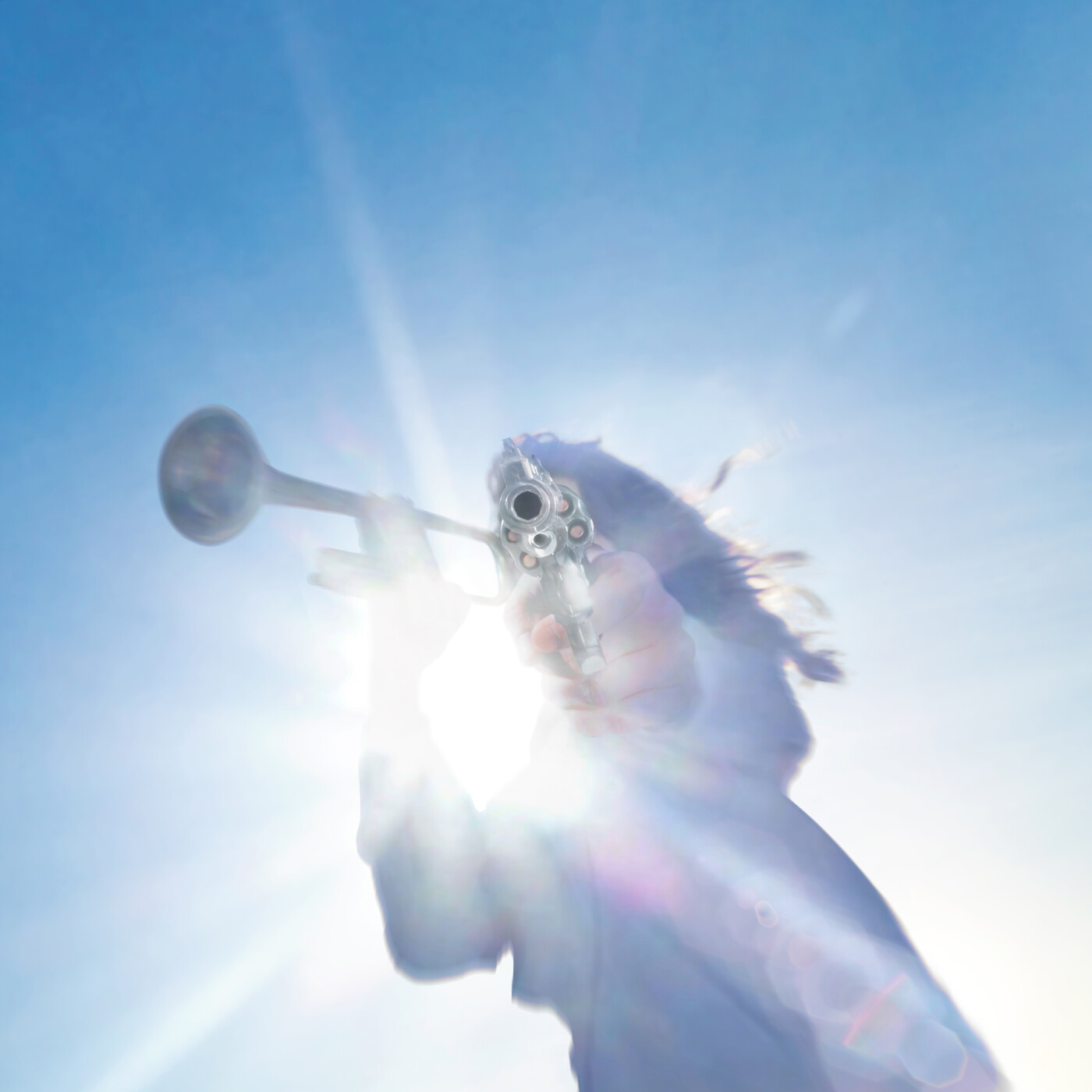Do you have trouble remembering your dreams? Thom Yorke does. In footage from 1994 that resurfaced this week on Reddit, an interviewer asks Yorke if he has strange dreams. The Radiohead frontman's reply:
I never remember my dreams, actually. Hardly ever at all, unfortunately... I think probably if I was that in tune with my dreams that I wouldn't write the way I write. I mean I kind of tend to use everyday objects and everyday things that happen rather than anything desperately cosmic because that's kind of the way I am. Doesn't mean the emotions behind choosing these things are any less relevant. It's just I can't write about green people and fluffy clouds and things just 'cause (a) it would sound ridiculous if I said it. Certain people could get away with it. And (b) it just, it wouldn't make any sense.
In that interview -- recorded in the interim between Radiohead's 1993 debut Pablo Honey (the album that gave us "Creep") and 1995's The Bends (the now legendary sophomore effort where they established themselves as much more than one-hit wonders) -- Yorke dismisses the idea of writing about the subconscious and insists he prefers to address relatable situations from everyday life. That was certainly true of his output back then, when Radiohead were a straightforward rock band only beginning to tap into their potential. But the guy has transformed quite a bit over the years, and just as his musical default has slowly morphed from high-flying guitar anthems to frigid avant-garde beatscapes, his approach to lyrics has changed too.
As a songwriter Yorke never stopped observing the world around him, a world that has become ever bleaker and more alarming. There is plenty of credit to go around for that, but much of it stems from crises he was worked up about long before most people could be bothered -- among them climate change, Orwellian nationalism, and technology's ability to both invade your privacy and incite a profound sense of alienation. Reckoning with these big-picture horrors has made Yorke his generation's preeminent prophetic doomsayer, but it has also inevitably caused him to examine his own inner life.
On songs like "How To Disappear Completely" and "A Wolf At The Door," he foregrounded the internal turmoil that usually exists in the margins of his music, that ambient anxiety that intensifies his messaging about issues much larger than himself. By 2016's A Moon Shaped Pool, he even released a song called "Daydreaming" and paired it with a music video that felt like a trip through his subconscious. And with new solo album ANIMA, Yorke has gone all-in on exploring the interior life. Its deep dive into the dream world just happens to be a means to more apocalyptic musings on our daily existence.
Yorke says ANIMA, out tomorrow, is largely inspired by psychologist Carl Jung's theories about the anima and animus, shadow selves that counterbalance our dominant masculine or feminine identities and manifest themselves in our subconscious. A press release announcing the album defines anima as "an individual's true inner self that in the analytic psychology of C. G. Jung reflects archetypal ideals of conduct." Teasers for the album reference a mysterious company called ANIMA Technologies, who market their services to people struggling to remember their dreams: "You're deep in a surreal world where you can be anybody you like, where you can do anything. And then you wake up, and the dream fades." It's like Michel Gondry remaking The Matrix for the Twitter era.
And make no mistake, the social media swarms loom large in ANIMA's symbology. Based on Yorke's interview with Zane Lowe published yesterday, it seems like he's equating the internet to Jung's concept of the collective unconscious:
We have started to emulate what our devices say about us and emulate the way we behave from that. I had this whole thing where the reason we can watch Boris Johnson lie through his teeth, promise something that we know will never happen, is we don’t have to connect with it directly because it's a little avatar. It's just a little guy with a stupid haircut just waving a flag. That's alright, it's funny! And the consequences are not real. The consequences of everything we do are not real. We can remain anonymous. We send our avatar out to hurl abuse and poison and then trot back, anonymous.
A Thom Yorke album is a great context for exploring these ideas. For one thing, starting with 2006's The Eraser, Yorke's solo work has functioned almost like a subconscious complement to his work with Radiohead. He's continued to address real-world concerns, be it the death of Iraq war whistleblower David Kelly on "Harrowdown Hill" or the melting polar icecaps on "There Is No Ice (For My Drink)." Yet solo Yorke is darker, dancier, and chillier than Radiohead and is quite literally a more private endeavor, even if he does continually involve the band's longtime producer Nigel Godrich. Even his original film score for Suspiria last year was mostly an abstract extension of the sound he's been carving out with his solo LPs -- a sound that, on balance, has not been as inviting or rewarding as Radiohead's collection of masterpieces, which balance out his unique sensibilities with other brilliant contributions.
Yorke himself once described The Eraser like so: "It has its own space. We consciously decided to not expand it beyond that. The vocals are exactly the same, right there in the speakers. The record was built to be listened to in an isolated space -- on headphones, or stuck in traffic." Although he inched back into a band context with Atoms For Peace's rhythmically charged Amok, 2014's Tomorrow's Modern Boxes ventured all the way back into The Eraser's shadowy domain. If the Radiohead catalog is an expansive universe worthy of Yorke's titanic fixations, with his solo work he has constructed an insular parallel dimension. And if the realm he's exploring on ANIMA conflates the internet with the subconscious, what better environment for it than the clicks and whirrs of his favored electronic milieu?
Aesthetically, ANIMA effectively blurs the lines between the social networks that define our online experience and the neural networks of the human brain. It's built upon the eerie keyboard drones and incessant electronic rhythms that Yorke has showcased on his solo records and in his recent live shows (in fact, he told Lowe that he and Godrich so thoroughly worked out the ANIMA material on the road that recording the album was quick and easy). Yorke's voice is usually the lone distinctly human component surrounded by scary machine noises. When a live instrument does pop into the mix -- the bass on "I Am A Very Rude Person" and "Impossible Knots," the guitar that introduces closer "Runawayaway" -- it feels like waking life intruding on slumber. Even the keyboards on "Dawn Chorus" that are obviously being played by a living person translate more like a robot on the verge of an emotional breakdown.
Furthering the ephemeral sensation are little echoes to Yorke's past work. Opener "Traffic" may well be a reference to the thirst for clicks that has helped to warp the modern media environment, but the title also evokes his longtime lyrical obsession with automobiles (killer cars, in particular). "Last I Heard (He Was Circling The Drain)" centers on the refrain, "I woke up with a feeling that I just could not take," which, given Yorke's grave tone, sounds even worse than waking up sucking a lemon. On "Twist," a tune that seemingly finds Yorke in thrall with Dan Snaith's more recent Caribou records, children's schoolyard chants function like exclamation points the same way they did on "15 Step." Whether intentional or inadvertent, such callbacks emphasize the sensation Yorke is aiming to create. Anyone who spends significant time online in 2019 is familiar with the nauseating feeling of being trapped in a digital prison where trolls run wild without accountability and confirmation bias rules all. Though Yorke's fractured poetry and throbbing atmospheric production, ANIMA reframes that experience as a nightmare we cannot wake up from.
Even more effective at getting the point across is the short film Yorke is releasing on Netflix in tandem with the album. Also titled ANIMA, it's directed by superstar auteur and longtime Radiohead collaborator Paul Thomas Anderson, who directed the "Daydreaming" video and has tapped Jonny Greenwood to score all his movies since There Will Be Blood. Set to the album's three best songs, the ANIMA "one-reeler" begins with Yorke dozing off on the subway and flailing in puppet-like choreography with his fellow sleeping commuters -- herky-jerky moves not so different from the ones Yorke has been known to bust onstage and in Radiohead videos. His girlfriend, the Italian actress Dajana Roncione, costars as the dance partner who helps him to temporarily emerge from the trance -- his anima, I guess? The subject matter is not exactly original, but such dazzling execution makes the ideas feel vital.
OK: The heady conceptual stuff is all well and good, but if you're among those who have been whipped up into euphoria by Yorke's best work, what you're really wondering is whether ANIMA measures up. And, I mean, definitely not -- those expecting the next Kid A or In Rainbows will be profoundly disappointed. On the other hand, at this late date most people investing their time in a Thom Yorke solo album have both a close attachment to his discography and a clear understanding of the computerized caverns they're venturing into.
If you dug Tomorrow's Modern Boxes, you're in luck -- ANIMA picks up where that album left off and largely improves on it. The album demands a lot of the listener, though. It's too unsettling to work as background music, and the greyscale production forces you to fully give yourself over to its headspace to grasp the dynamic compositions beneath. In particular "The Axe" is the type of track that validates every criticism lobbed at Yorke over the years, a seven-minute dirge with no discernible payoff and lyrics that read like some lesser SNL writer's Yorke parody: "Goddamned machinery, why don’t you speak to me? One day I am gonna take an axe to you." When he whimpers, "I thought we had a deal," the feeling is mutual.
That said, there are some absolute bangers on ANIMA. The frenetic "Twist" is proof that a seven-minute Thom Yorke song need not be a drag. "Traffic" pops and heaves with an urgency that will have your body moving as wildly as Yorke's. The towering, symphonic club wrecker "Not The News" beats a fresh path to the kind of harrowing climax this guy built his legend on, and it contains the album's most concise summation of the bleary computer world we all inhabit: "Who are these people? I'm in black treacle." And maybe no one is going to put "I Am A Very Rude Person," the record's surprisingly organic midpoint, on their Thom Yorke top 10, but it works well as a respite from the claustrophobic clatter. That one finds Yorke plotting to overcome our technology-addled hypnosis by overthrowing the systems that perpetuate it: "I hope the spell's gonna break/ I have to destroy to create."
Unsurprisingly, the best song here is the one Yorke spent years developing with Radiohead. Perversely, it's also one that forgoes the hallmarks of Radiohead's most beloved work. Yorke told Lowe he toyed around endlessly with the drowsy percussionless pulse "Dawn Chorus" in search of the coldest sound possible, and he purposefully did away with vocal melody almost entirely. The result is a far cry from the soaring falsetto and blindingly colorful epics of OK Computer. Instead it hearkens back to songs like the Amnesiac B-side "Fog" and A Moon Shaped Pool's "Glass Eyes," depressive mirages to drown your sorrows in.
In this one he beckons a loved one to turn away from the shiny happy illusion of "a little fairy dust" and "a thousand tiny birds singing." The song flickers with regret and the sense of two people falling irreparably apart. It seems to come from somewhere deeply personal, yet as always, any real or imagined allusions to Yorke's own life are couched in the broader context of a world rapidly sinking into catastrophe. Repeatedly he petitions, "Please let me know/ When you’ve had enough/ Of the white light/ Of the dawn chorus." Even on his album about dreams, Yorke's clearest message still seems to be wake the fuck up.
[videoembed size="full_width" alignment="center"][/videoembed]
ANIMA, the album, is out 6/27 digitally and 7/19 physically via XL. Pre-order it here. ANIMA, the film, hits Netflix 6/27.






